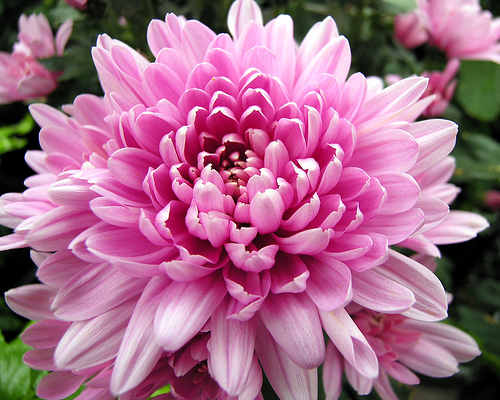
CHRYSANTHEMUM
WHEN nuts are dropping from the trees, and corn is gathered in,
When purple grapes are on the vine, and apples in the bin,
When far across the level fields is borne the crow's harsh call,—
Then in the garden lifts its head the bravest flower of all.
Chrysanthemum—the name is long for little lips to speak,
But Ethel loves the cheerful bloom, and holds it to her cheek;
For on the winter's icy edge it sets its banner bold,
With fragrance keen as myrrh and spice, with colors clean and cold.
Clematis twined its airy wreaths, and faded from the land;
No more the sumac rears its plume, by gentle breezes fanned;
Dear Mother Nature tells the rots. 'tis time to hide her head,
And every tiny violet is tucked away in bed;
The birds which sang in summer days are flying to the South;
The fairies lurk no longer in the morning-glory's mouth;
And Ethel, sitting down to rest linear the old stone wall,
Geese, bright and strong and undismayed, the bravest flower of all.
Its petals may be tipped with pink, or touched with palest hue
Of yellow gold, or snowy white, their beauty smiles at you;
And little reeks it though the frost may chill the nipping air,
It came to see the curtain drop, this flower so debonair.
Chrysanthemum—a harder word than children often say,
Yet little Ethel croons it o'er to music blithe and gay;
"For east," she cries, "and west the leaves they flutter and they fall,
And still I find Chrysanthemum the bravest flower of all."
Oh, brand-by the fierce north wind in wildest wrath will blow,
The sleet upon the panes will beat, and Nature swift shall go
And whisper to Chrysanthemum—shall little Ethel hear?—
"Come, darling flower; the play is done. I'll bring YOU back next year."
Margaret E. Sangster